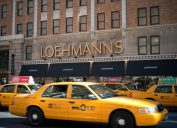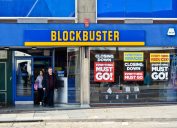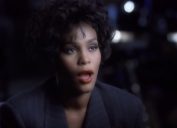29 Beloved Stores Kids Born After 2000 Will Never Appreciate
We'll never forget what it felt like to shop at Contempo Casuals, Gimbels, and Tower Records.
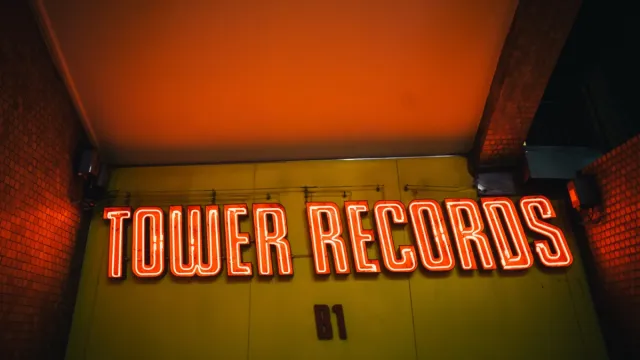
We understand the appeal of online shopping: It's quick, it's convenient, the options are limitless, and you don't even have to get out of your pajamas. That said, there's something about old-fashioned brick-and-mortar stores that we miss. There are a few stores in particular—now long out of business—that still give us pangs of nostalgia. And honestly, we feel kind of bad for younger generations who will never get to experience them. Here are just a few of our favorite stores that no longer exist, dusty artifacts from another era that we feel lucky were once part of our lives.
1
Warner Bros. Studio Store
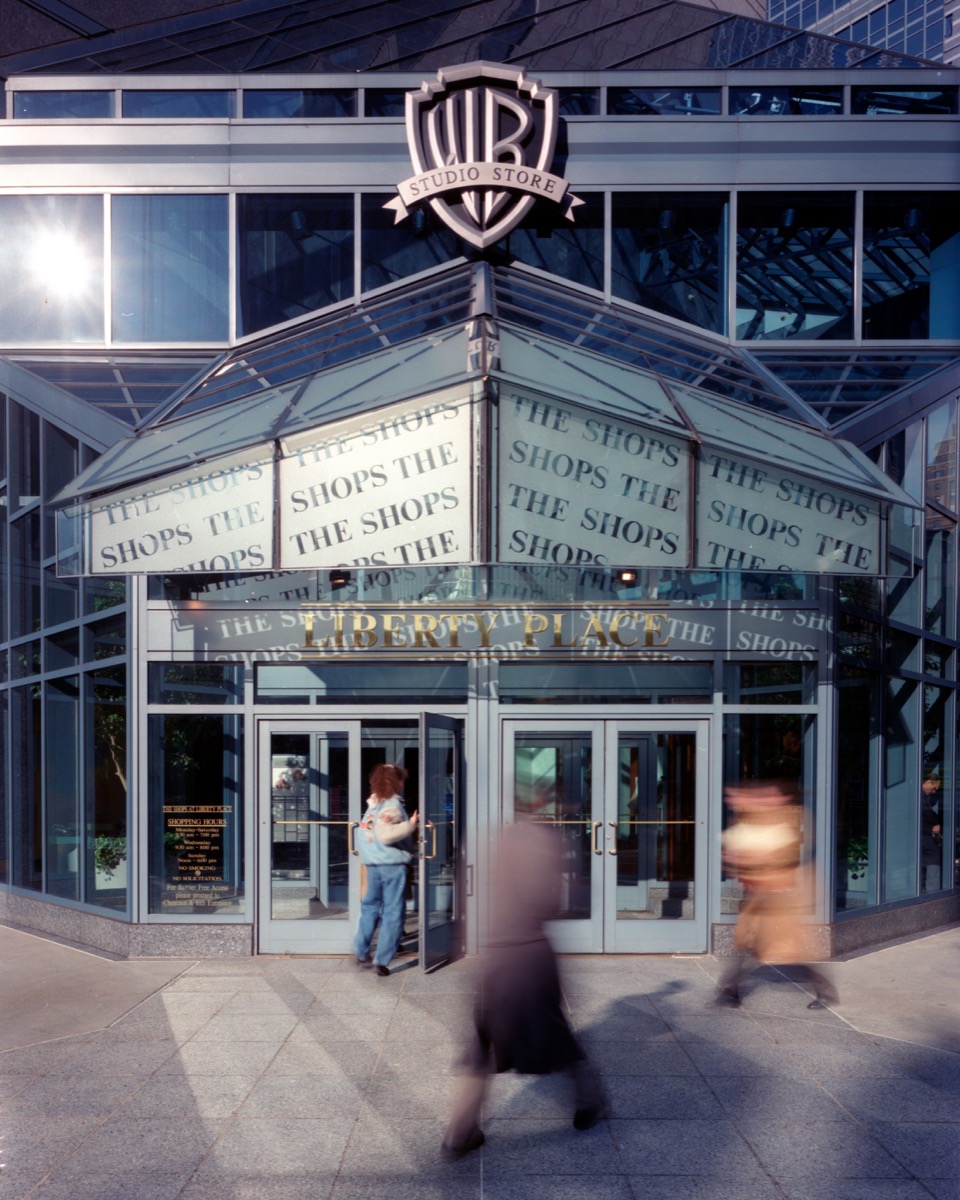
When you needed a pair of Batman boxer shorts or an oversized Bugs Bunny sweatshirt, this was the place to go. Even if you didn't have a dime to your name, you could spend time in Marvin's Rocket, a recreation of Marvin the Martian's space ship. You could waste hours just hitting buttons—that is, until the Warner Bros. Studio Store went out of business in 2001.
2
Kids "R" Us
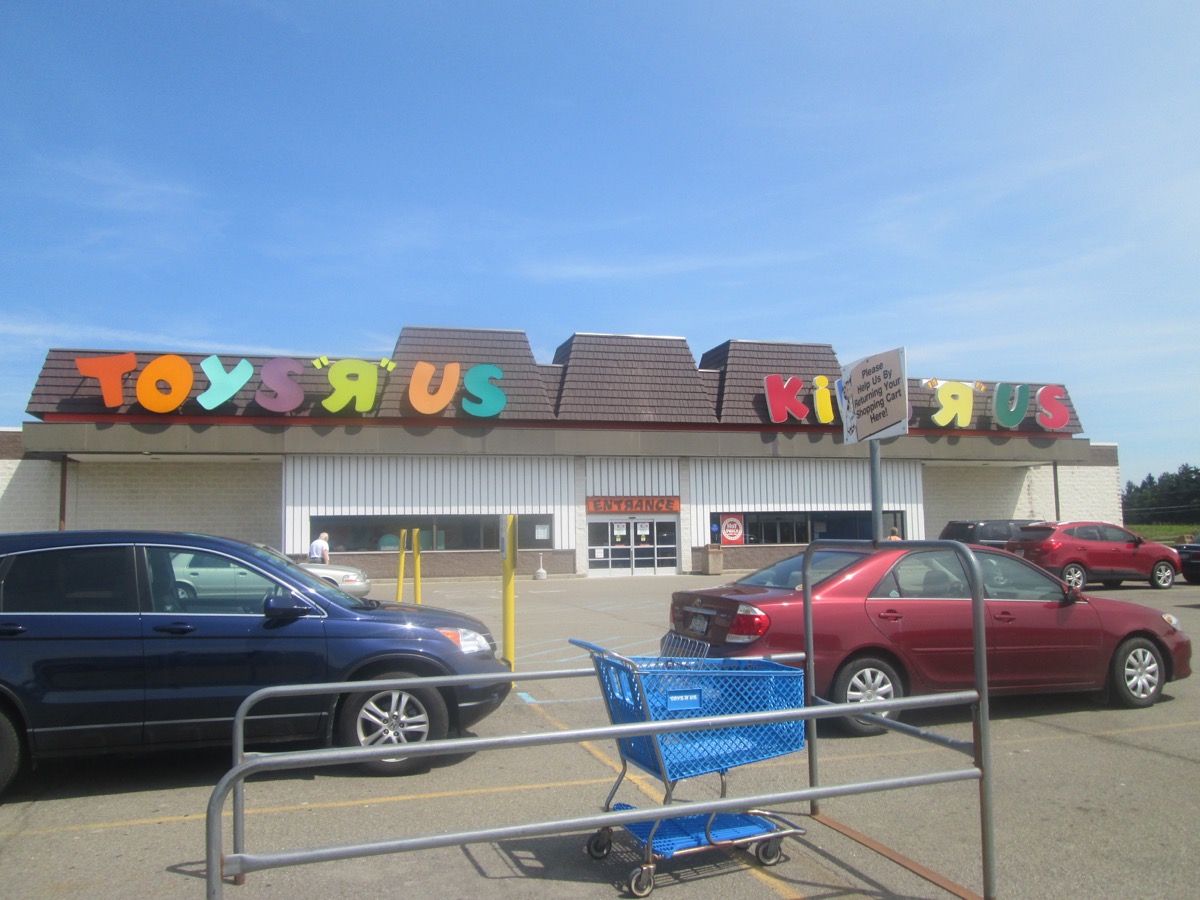
If we had known that these kid-friendly clothing stores would disappear some day—as they did in 2003—we probably would have bought more shirts with Geoffrey the Giraffe on them. Isn't it odd how a little bit of time can totally change your perspective? At least Toys "R" Us, which once seemed destined for the same fate, is sticking around for the time being.
3
Kinney Shoes
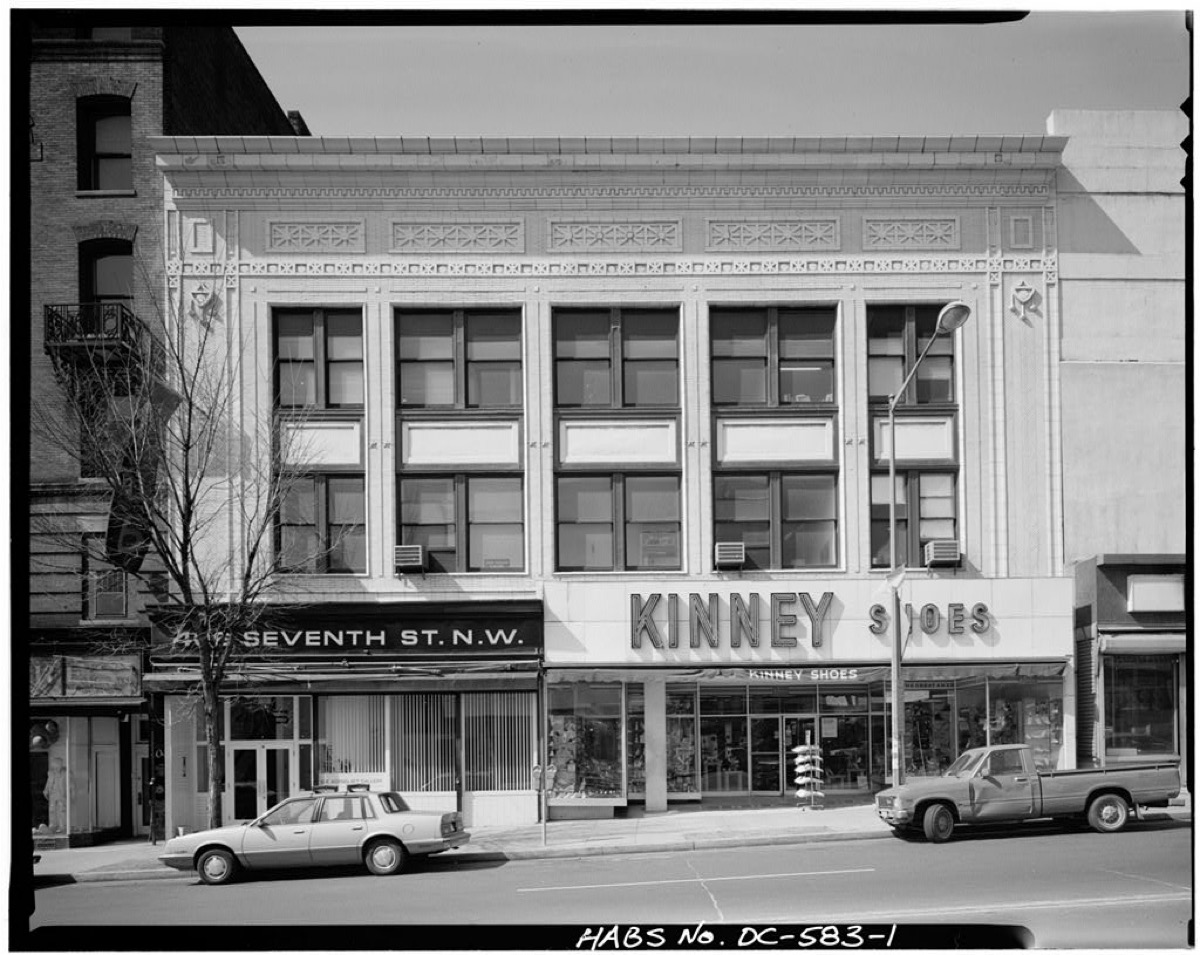
You knew it was going to be a good day when your mom drove you to the mall to get a new pair of sneakers at Kinney Shoes. Getting your first pair of NBA shoes with the upside-down swoosh or the Air Jordan knock-off Stadia was a seriously big deal. We can still feel the icy cold sting of a Kinney's metal shoehorn on our heels, and—believe it or not—it makes us nostalgic for this store that closed up shop in 1998.
4
Woolworths
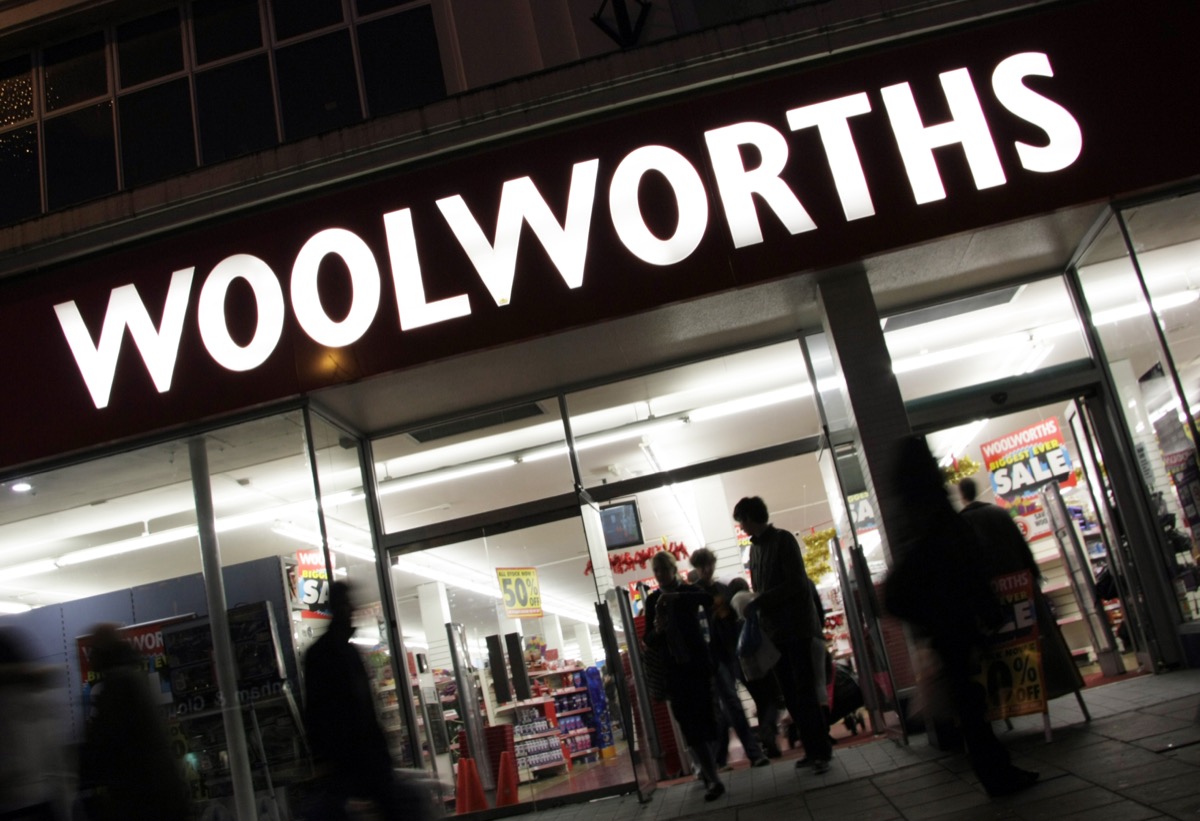
Long before such things became ubiquitous, Woolworths was the store with everything. You could buy groceries, toys, jewelry, utensils, socks, hardware. By 1979—the 100th anniversary of its founding—Woolworths had become the largest department store in the world. Imagine walking into a superstore and realizing they had everything your heart could desire, and being genuinely shocked and grateful. Unfortunately, Woolworths entered into a period of decline toward the end of the 20th century, and ended up shuttering its retail stores.
5
Zany Brainy
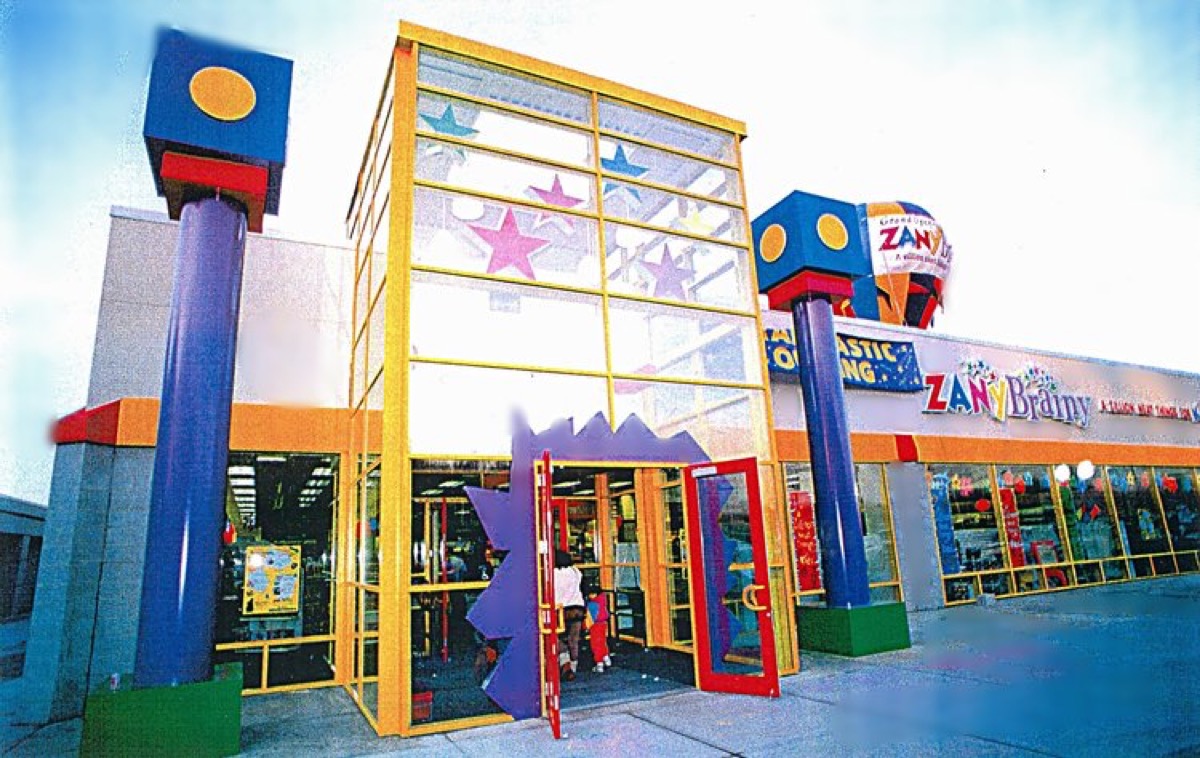
With stores across the country, Zany Brainy was where the smart kids shopped for their toys. Where else were you going to find educational board games and robot construction kits? Everything was in bright neon colors and there were usually train sets operating somewhere in the store—plus crazy contests like yo-yo championships. It was a retail toy store that treated kids like intellectual giants, and it was a real loss when it went bankrupt in 2001.
6
Camelot Music
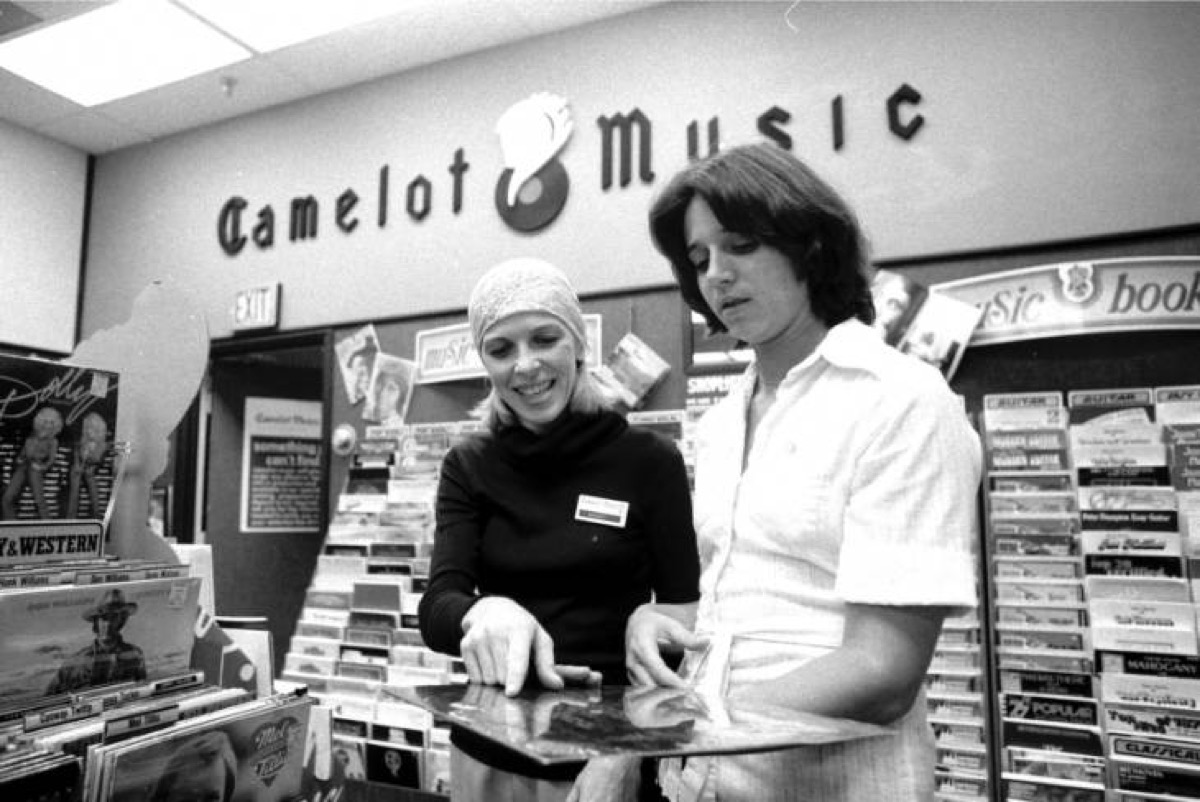
Their motto was "No One Knows Music Better," and while there may have been more reputable music historians than the teenagers working at a mall store, Camelot Music employees could always point you in the right direction. Alas, the company was forced to close stores around the country in 1998.
7
Gimbels
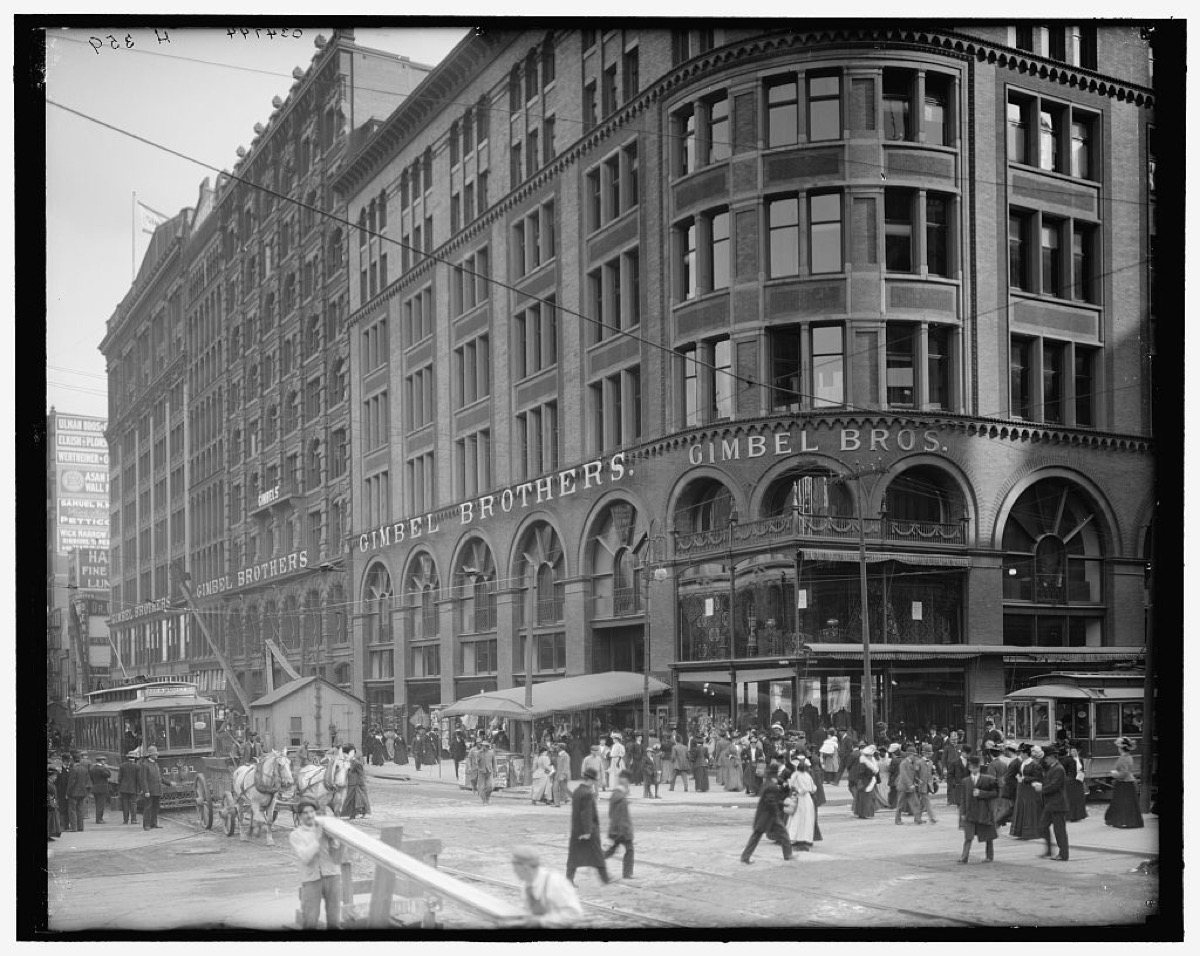
Outside of Miracle on 34th Street, Gimbels is a name you rarely hear anymore. Once upon a time, it was the largest department store in the world, with flagship stores around the country and its very own Thanksgiving Day Parade. (That's right, before Macy's followed suit years later.) Fun fact: The Philadelphia location was the first department store anywhere to allow customers to move from floor to floor via escalator. And in terms of what they'd find there—if Gimbels didn't have it, was it even worth having? That question is no longer meaningful, of course: Gimbels closed its New York store in 1986, and the rest followed suit.
8
Contempo Casuals
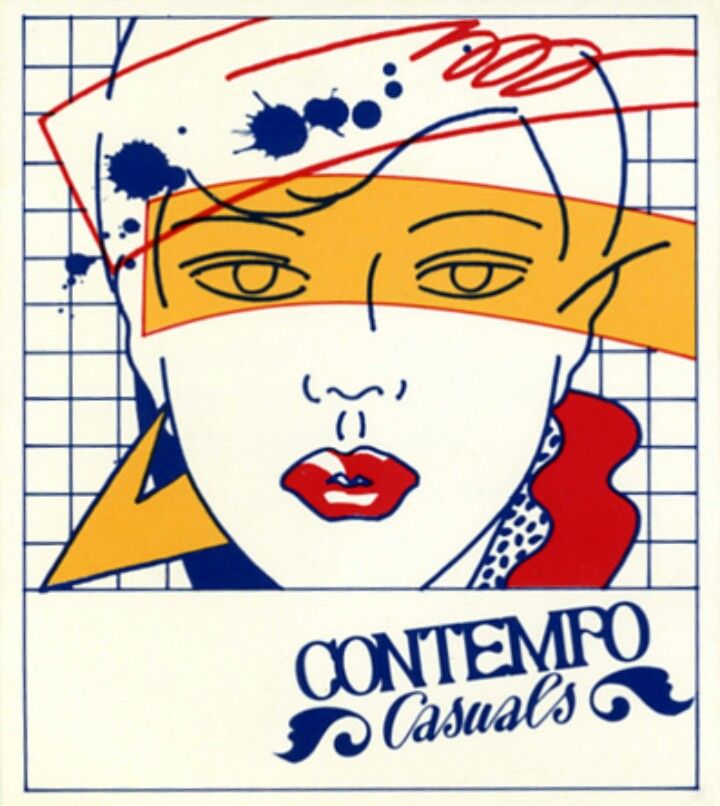
How cool was Contempo Casuals in the '90s? So cool that it's where Garbage frontwoman Shirley Manson bought a $15 jacket to wear to the Grammys. Even if you weren't an alt-rock superstar, it was the only place in the mall to get the best jelly shoes and jam pants. It was also one of Cher's favorite clothing stores in Clueless, and you're not going to get a better endorsement than that. Somehow, Contempo Casuals still couldn't stay afloat, and it was sold in 1995.
9
Sam Goody
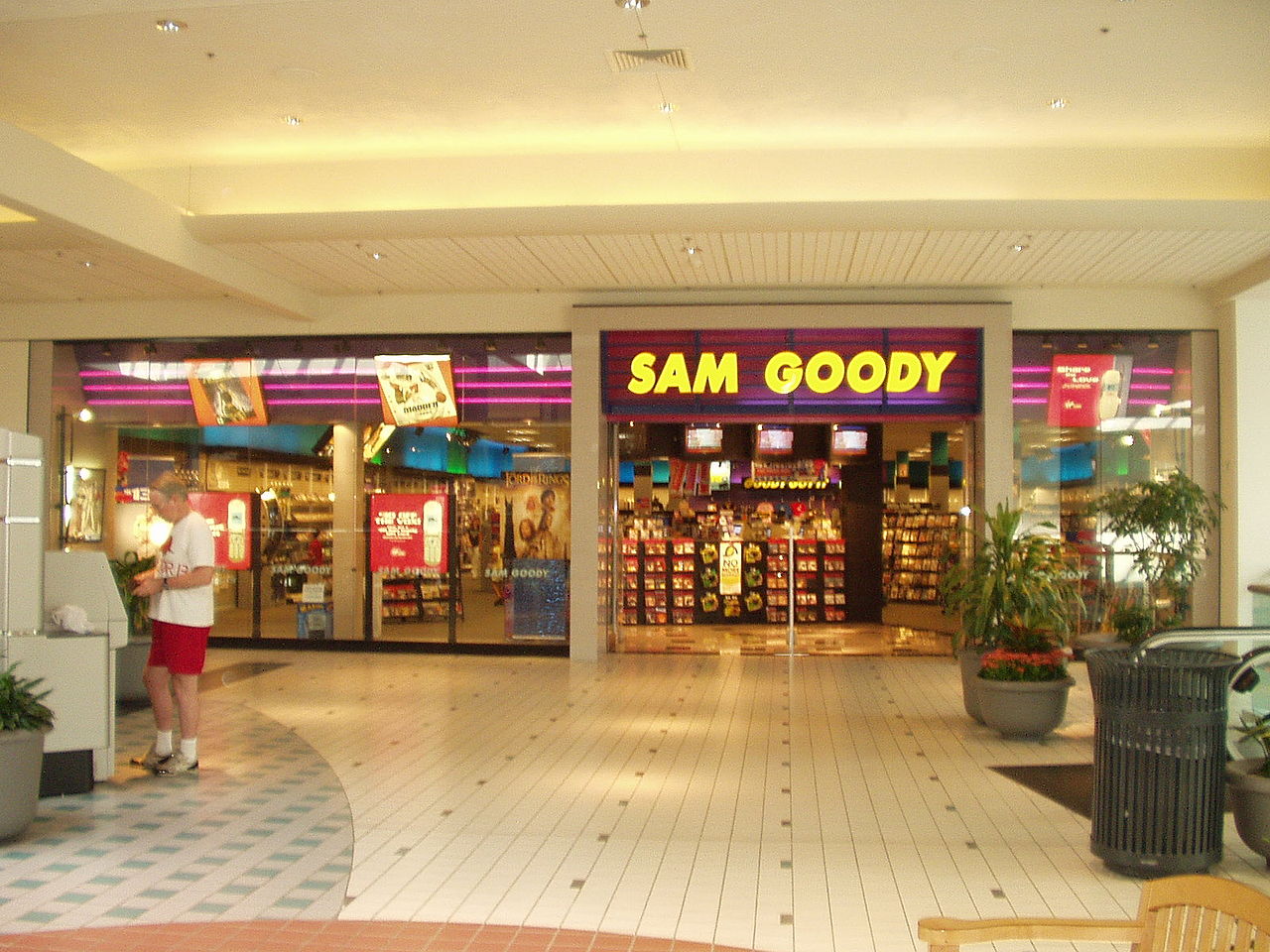
It was so much more than just a massive store that sold records and cassettes. Named for an actual guy, Samuel "Goody" Gutowitz, it had crazy promotions like giving away free turntables, and "Bandemonium" talent contests that predicted the success of American Idol. Sam Goody was bought by Best Buy, which closed the stores in the early 2000s.
10
Chess King
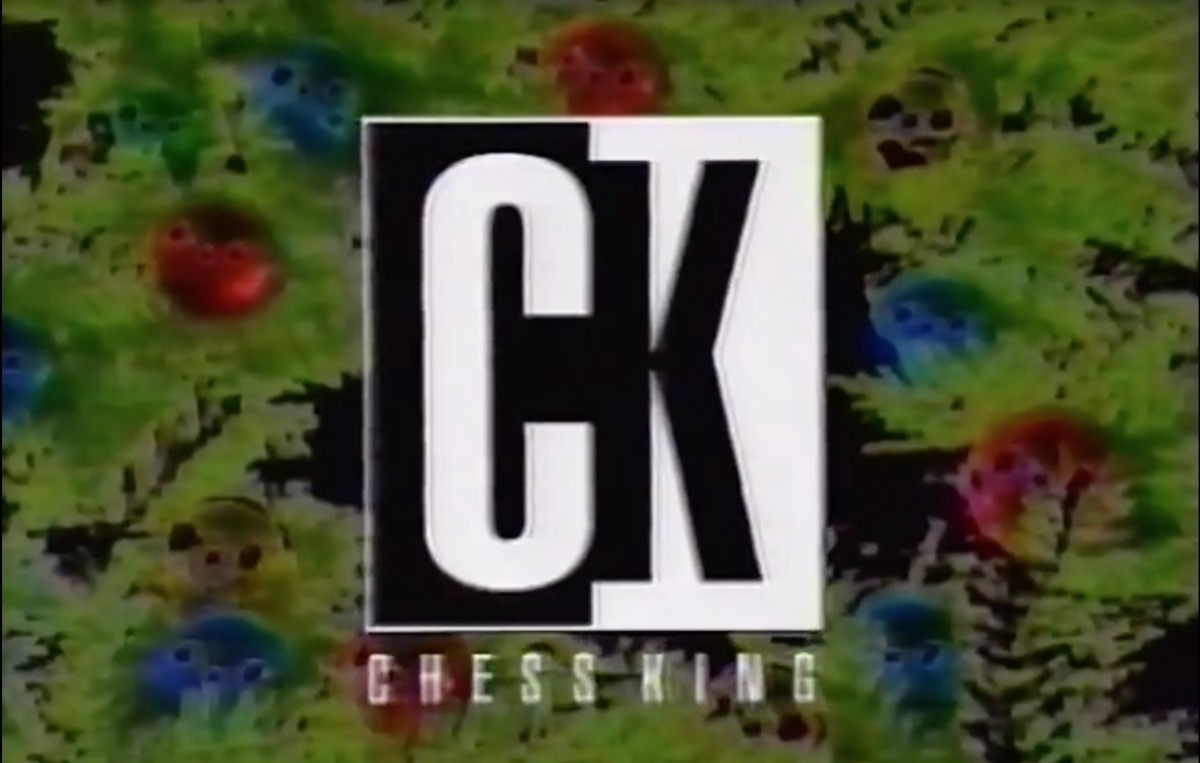
The only store in the mall created just for the teen boy with a passion for bold colors, bold designs, and chess. Sounds like a niche market, but after launching in 1968, the store did great business—at least, for a while. Chess King was sold in 1993, and disappeared just two years later.
11
Fotomat
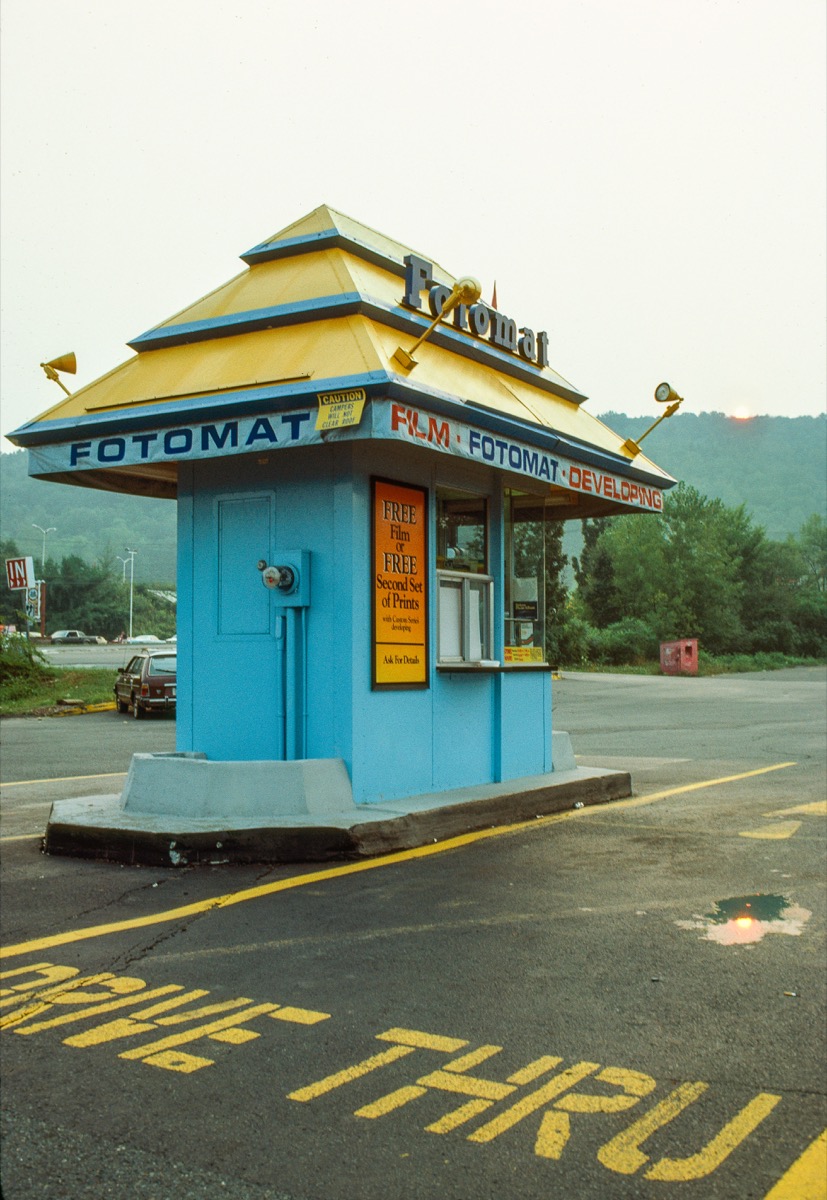
To those who have grown up with camera phones and Instagram, it might be especially hard to understand why Fotomat was so important. These were kiosks with gold-colored pyramid roofs, conveniently located in almost every mall parking lot in America, where you'd drop off your undeveloped film with a "Fotomac" professional. The next day, you'd come back and, presto, your photos were ready! Technology has given us instant gratification, but nothing will ever compete with the excitement of driving toward a Fotomat, knowing you would finally get to see your vacation photos. Fotomat struggled throughout the '80s, and eventually, these once-omnipresent kiosks disappeared entirely.
12
Marshall Field's
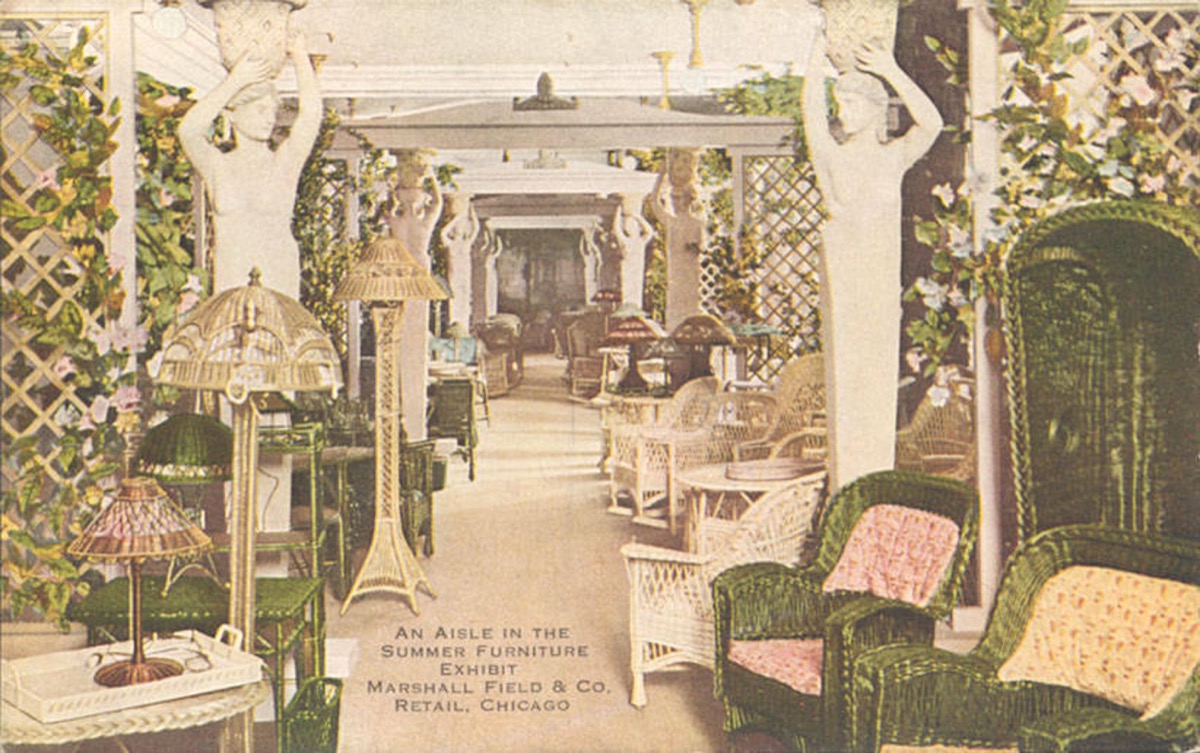
No department store was ever more magical during the holiday season than Marshall Field's was. From the levitating ice reindeers to the holiday window displays with staggering animatronics to the Christmas tree, for many years the largest indoor Christmas tree in retail, towering at 45 feet. The store was bought by Macy's in 2006, and it's never had quite the same magic.
13
Noodle Kidoodle
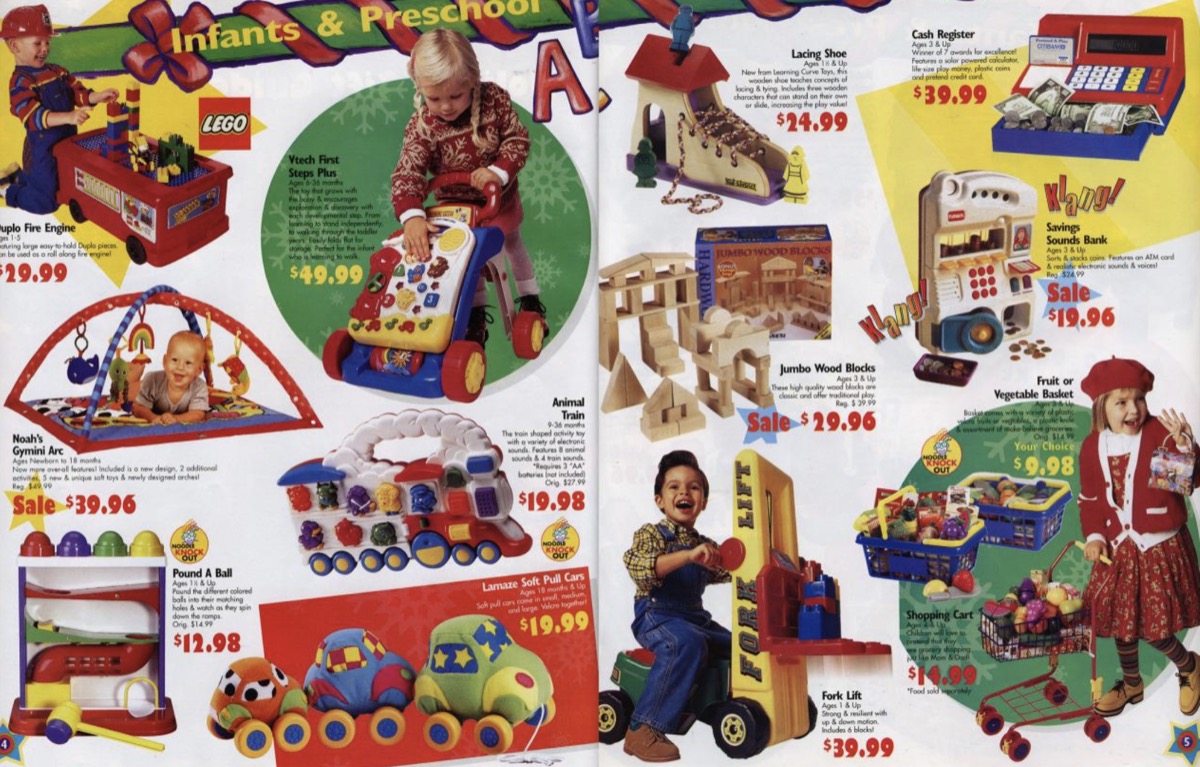
The name made it sound like a restaurant chain specializing in pasta dishes for kids, but it was far more interesting than that. These stores more than lived up to their slogan, "Kids learn best when they're having fun," with toy stations devoted to computer software, arts and crafts, science and nature, and puzzles. When that got boring, you could always check out a big-screen movie in the Kidoodle Theater. In 2000, Noodle Kidoodle was bought by Zany Brainy, and well, you know how things turned out for them.
14
Gadzooks
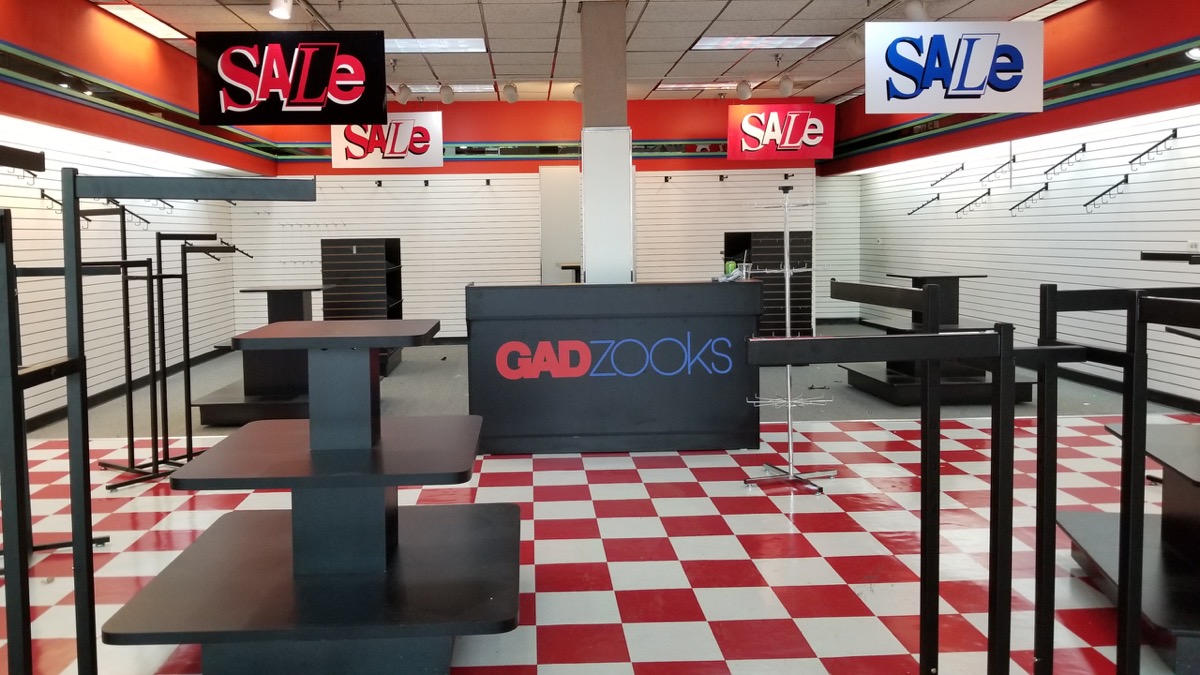
Launched in Texas in 1983 as a T-shirt retailer, it soon swept the country as the only mall clothing store where you could shop out of the hood of a Volkswagen Beetle that had been sawed in half. None of it really made sense, which is part of what we loved. If you craved super-wide JNCO jeans, Gadzooks pretty much became your home away from home. Forever 21 bought Gadzooks in 2005, and eventually closed all the stores. (Forever 21 has not been doing all that well either.)
15
FuncoLand
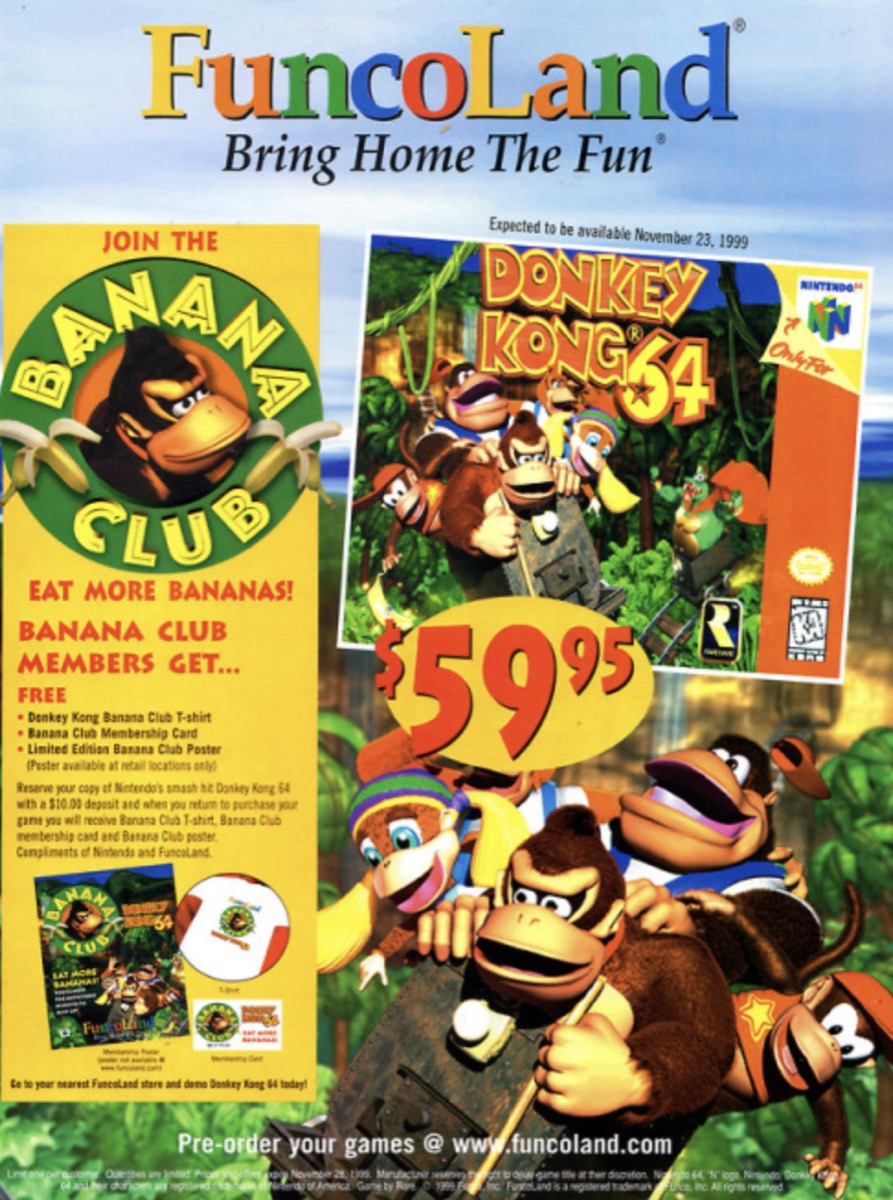
Talk to anyone who spent their allowance or money earned from mowing lawns at FuncoLand, and they'll tell you that it was hands down the greatest video game store in history. Not only could you get any Atari, Nintendo, or Sega games at ridiculously discounted prices, but there were also enough gaming consoles in the store that you could try any game before paying for it. It was paradise for gamers, but things were never really the same after it was acquired by Electronics Boutique in 2000.
16
The Wiz
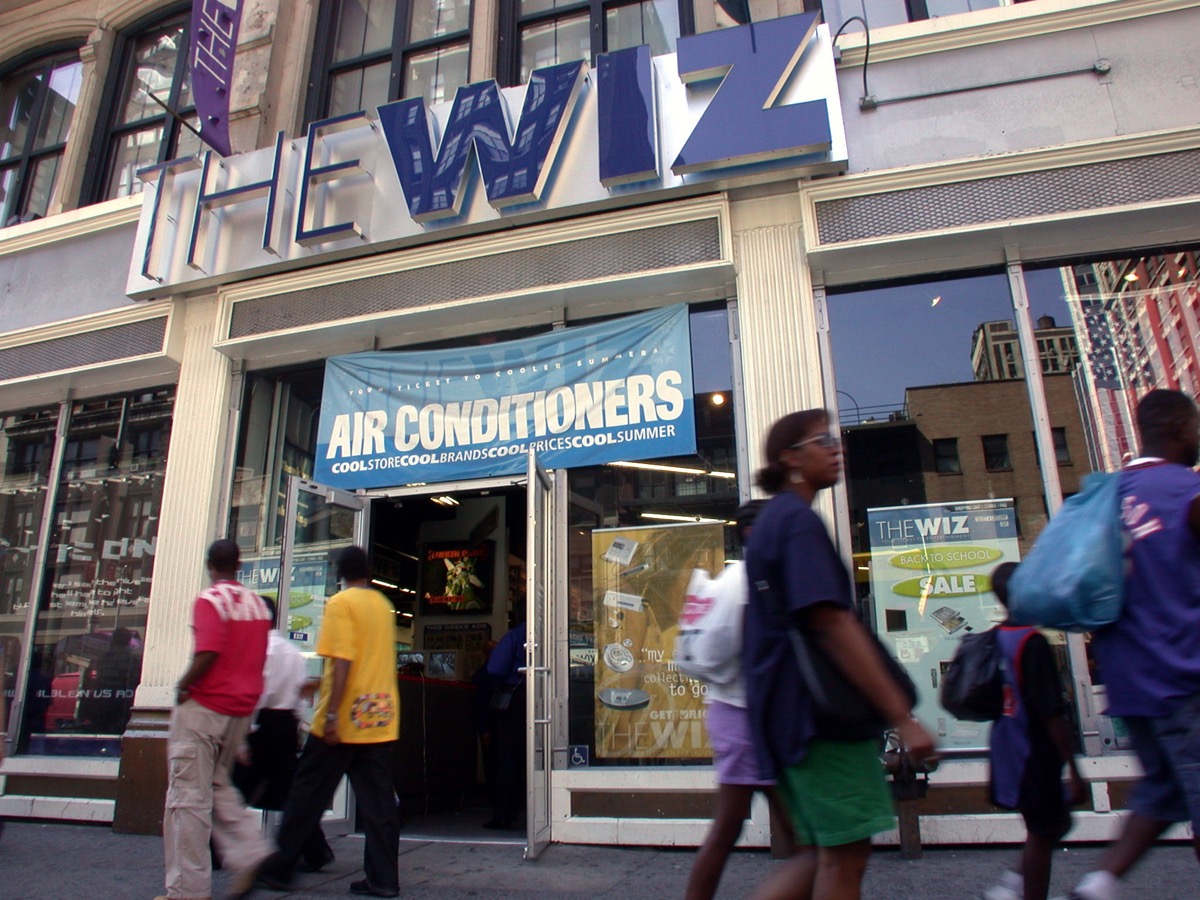
The name lives on thanks to Seinfeld reruns—you remember that episode, right?—but few people recall that The Wiz was a real electronics and music retailer, founded in 1977 by four brothers in New Jersey and soon growing to locations all across the Northeast. It sold VCRs, CDs, TVs, boomboxes, computers, and pretty much anything else with a plug. The company went bankrupt in the late '90s and all the stores closed in the early 2000s, proving that, eventually, somebody always beats The Wiz.
17
Imaginarium
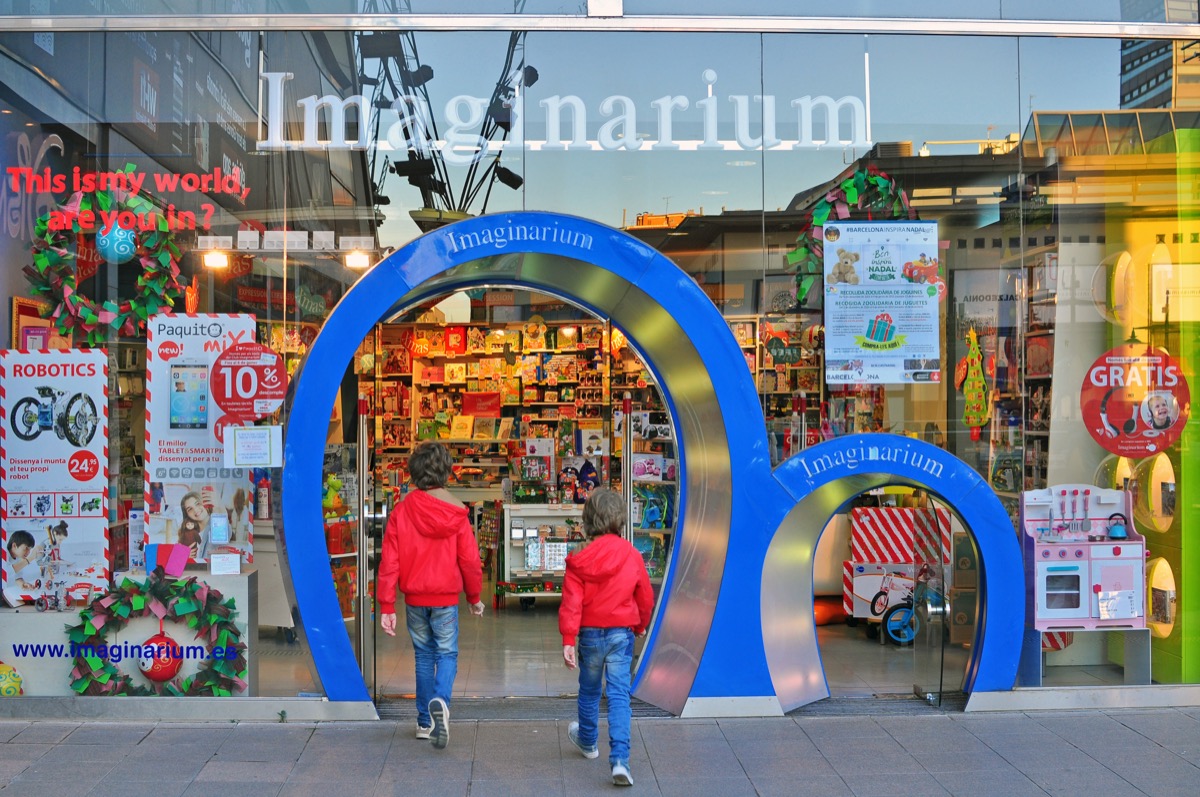
How many stores did smart kids need during the last century? Apparently a lot, and Imaginarium, which dominated the late '80s and early '90s before disappearing in 2003, was one of the best. Their inventory only included toys that were "nonviolent and non-sexist," so you wouldn't find any Barbie or G.I. Joe dolls—only toys and games deemed to be educational, like Etch A Sketches, Erector Sets, and anything that tricked you into learning about math or science.
18
Mervyn's
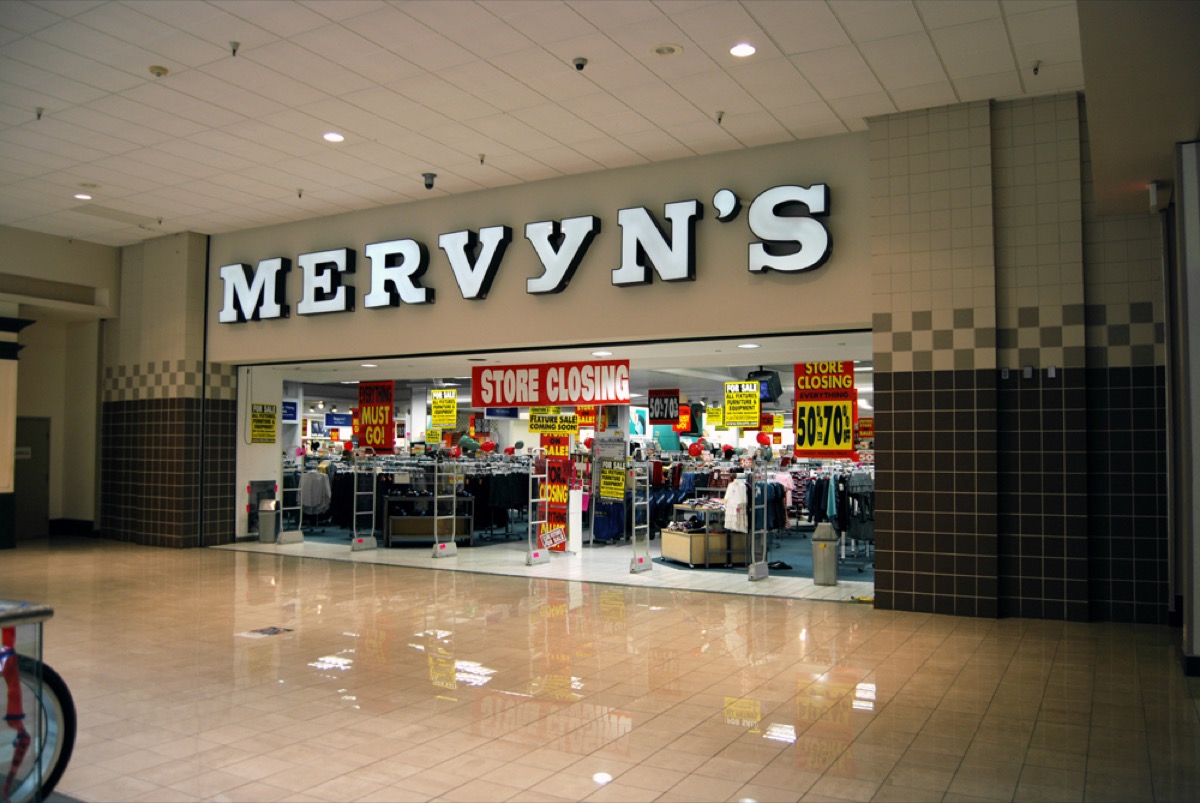
With 300 stores in 16 states, Mervyn's was the place your parents took you if they were on a budget for your back-to-school clothes. Products here weren't discounted—they were "mid-priced." It just sounded reasonable, and you were more likely to walk out with an outfit you wanted, without your parents looking stressed about how they'd pay off the credit card. Mervyn's had monetary woes of its own, however, filing for bankruptcy in 2008 and eventually shuttering all its stores.
19
Bradlees
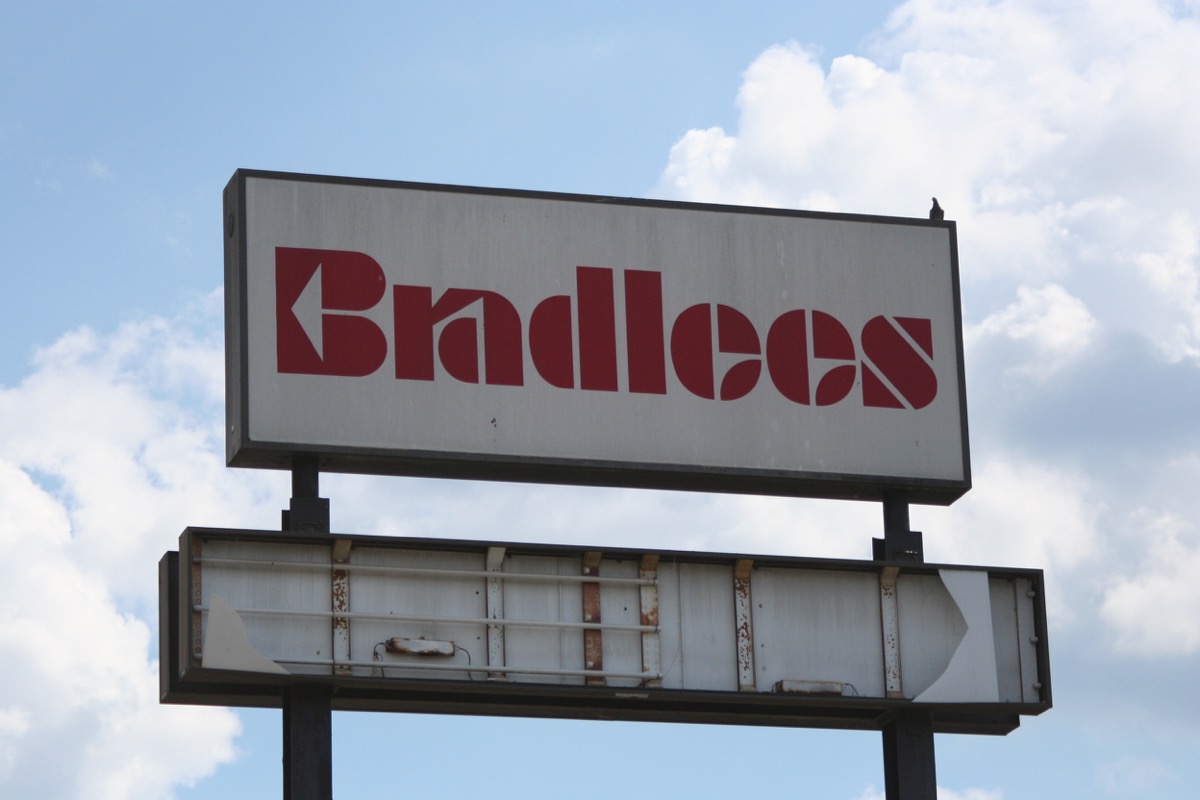
The name was inspired by the Connecticut airport where the investors first discussed their new business venture. Bradlees went on to become one of the most recognized and adored discount department stores on the East Coast. We all identified with the "Mrs. B" character in their commercials, always on the hunt for a bargain. Bradlees went out of business in 2000, with the last store closing the following year, and the Mrs. B in all of us will never be the same.
20
Tower Records
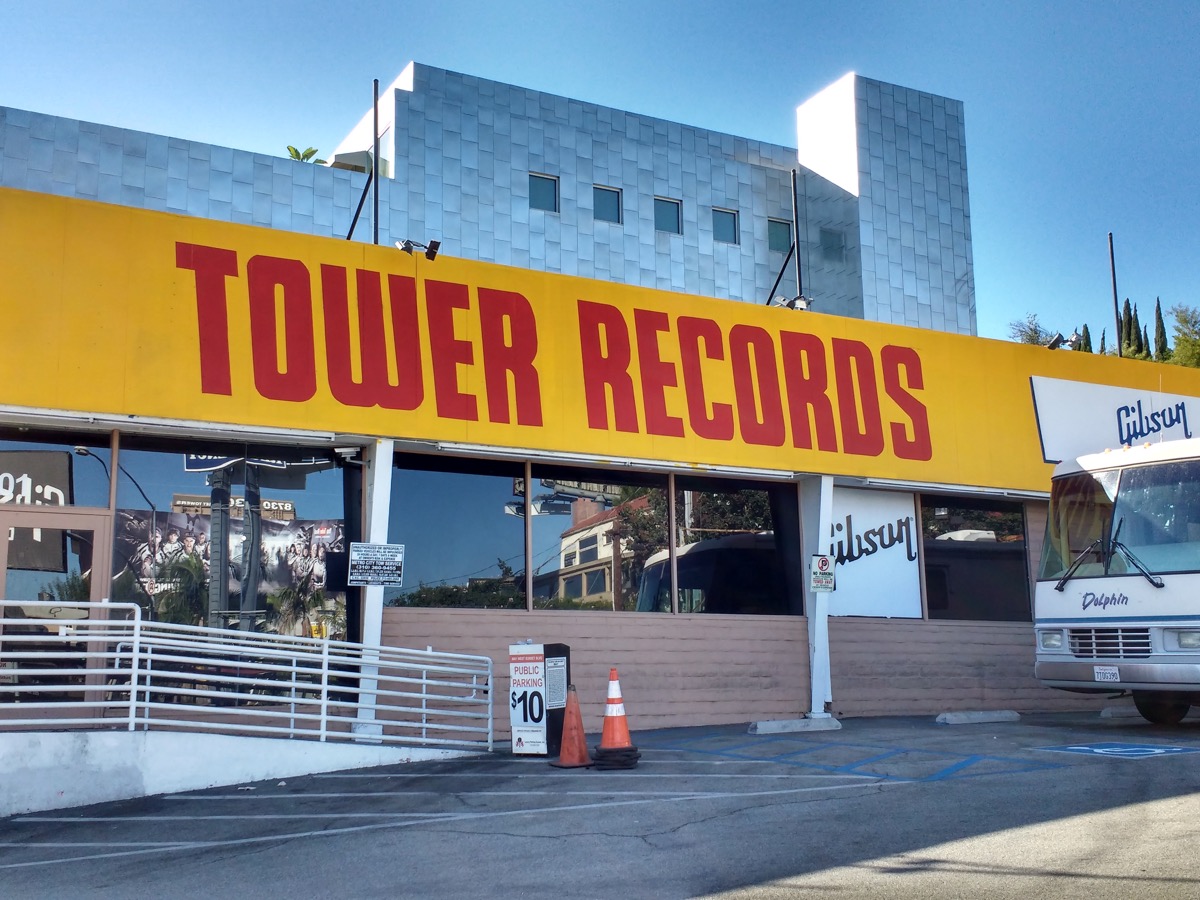
It wasn't just a place to buy music; it was a place to loiter for hours, flipping through new and old releases, and talking about music with kids who cared about it as much as you did. What set Tower Records apart from other record stores was the volume—if you couldn't find what you wanted at Tower, you just weren't looking hard enough. The last store closed in 2006, but the company motto lives on: "No Music, No Life."
21
Thom McAn
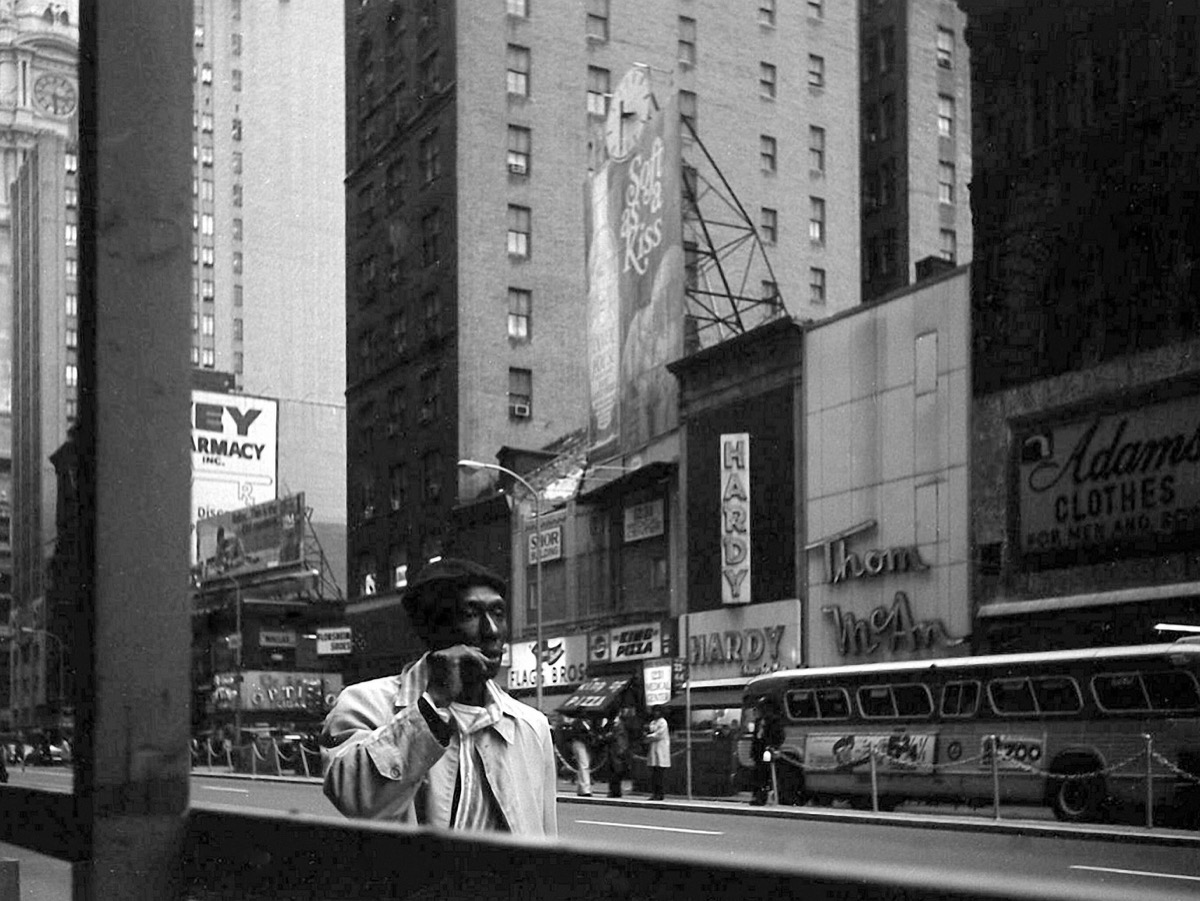
They called themselves "America's Shoe Store," and who were we to disagree? From 1922, when they were selling $3 shoes at their New York store, to the 1970s, when it seemed like there was a Thom McAn in every mall in America, the name was synonymous with quality footwear—at least until they all closed down in 1996. As for what happened to Thom McAn, the man who launched a thousand shoe stores never existed. He was dreamed up by the co-owners, J.F. McElwain and Frank Melville, who spelled his name "Thom" because they wanted to bring some of their Scottish heritage to the brand.
22
Price Club
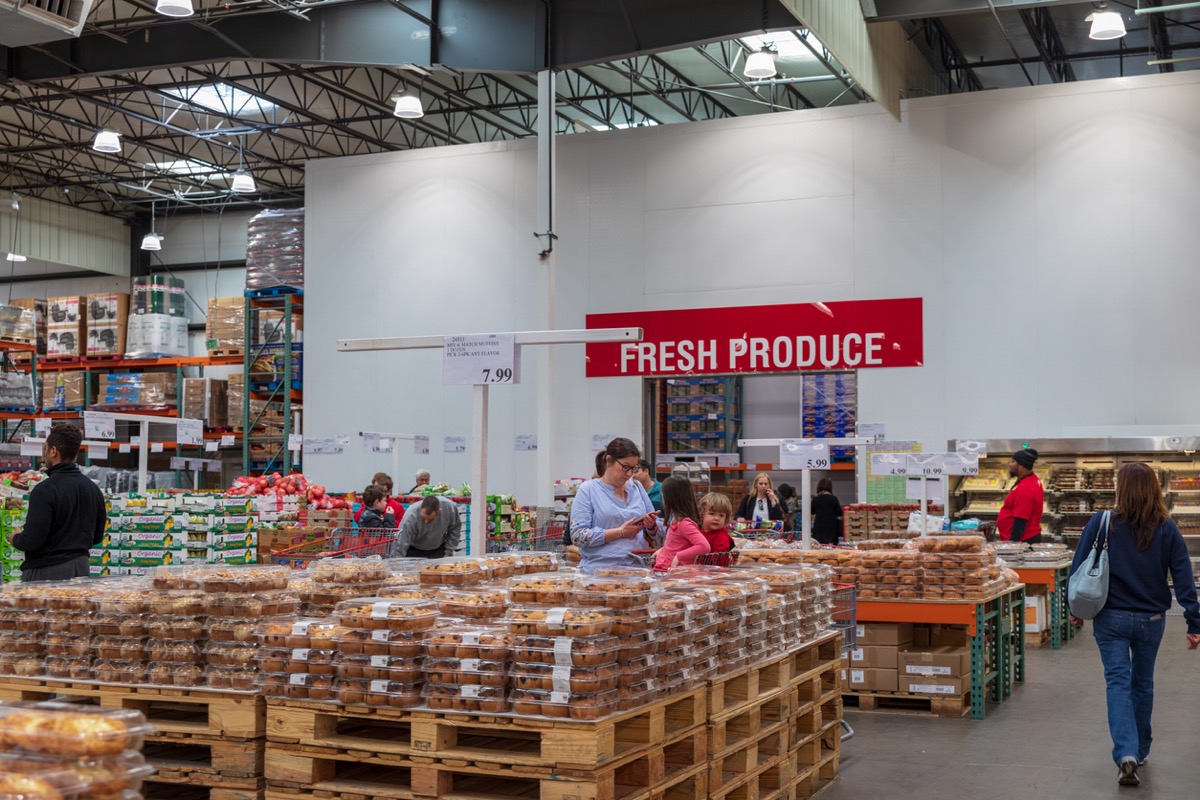
Before there was Costco and Sam's Club, there was Price Club, the granddaddy of discount big-box stores. Launched in 1976 in San Diego, at a warehouse once owned by Howard Hughes, it was a revelation to families on a budget. But it wasn't just the savings: Price Club made discount shopping fun. There was something really satisfying about wandering through a store the size of an airplane hanger—because, in many cases, it was a former airplane hanger—to buy oil drums full of ketchup. The experience made shopping feel less like a chore and more like an adventure. Price Club merged with Costco in 1993, and eventually the Price Club name was phased out.
23
Hollywood Video
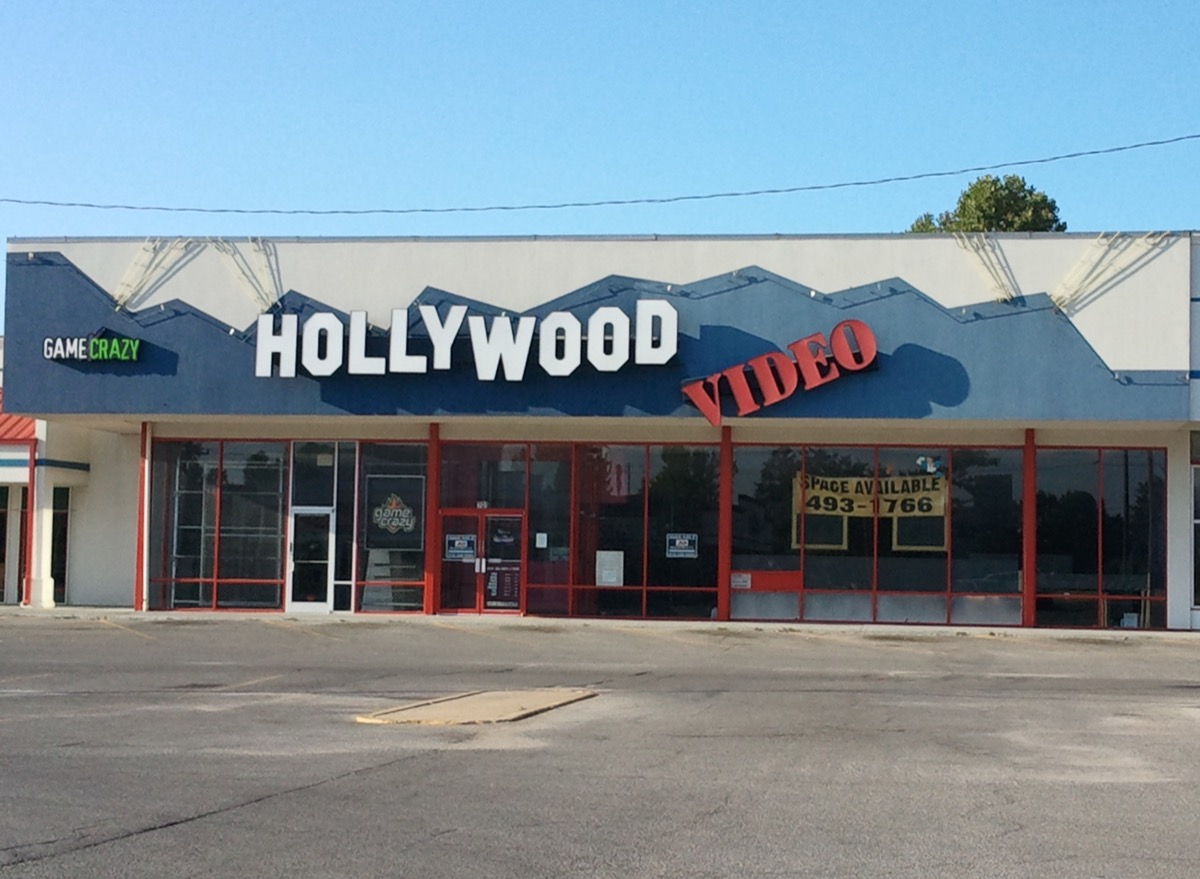
There were no guarantees when you visited a Hollywood Video location: New releases disappeared in the blink of an eye, and sometimes even old favorites weren't available if someone had gotten to them first. That might sound like a nightmare to anyone who has grown up in a digital world, where movies are available whenever you want them, but today's instant access lacks the excitement, the thrill of the hunt, and the heart-wrenching disappointment that came from a trip to Hollywood Video, which closed its last store in 2010.
24
Hickory Farms
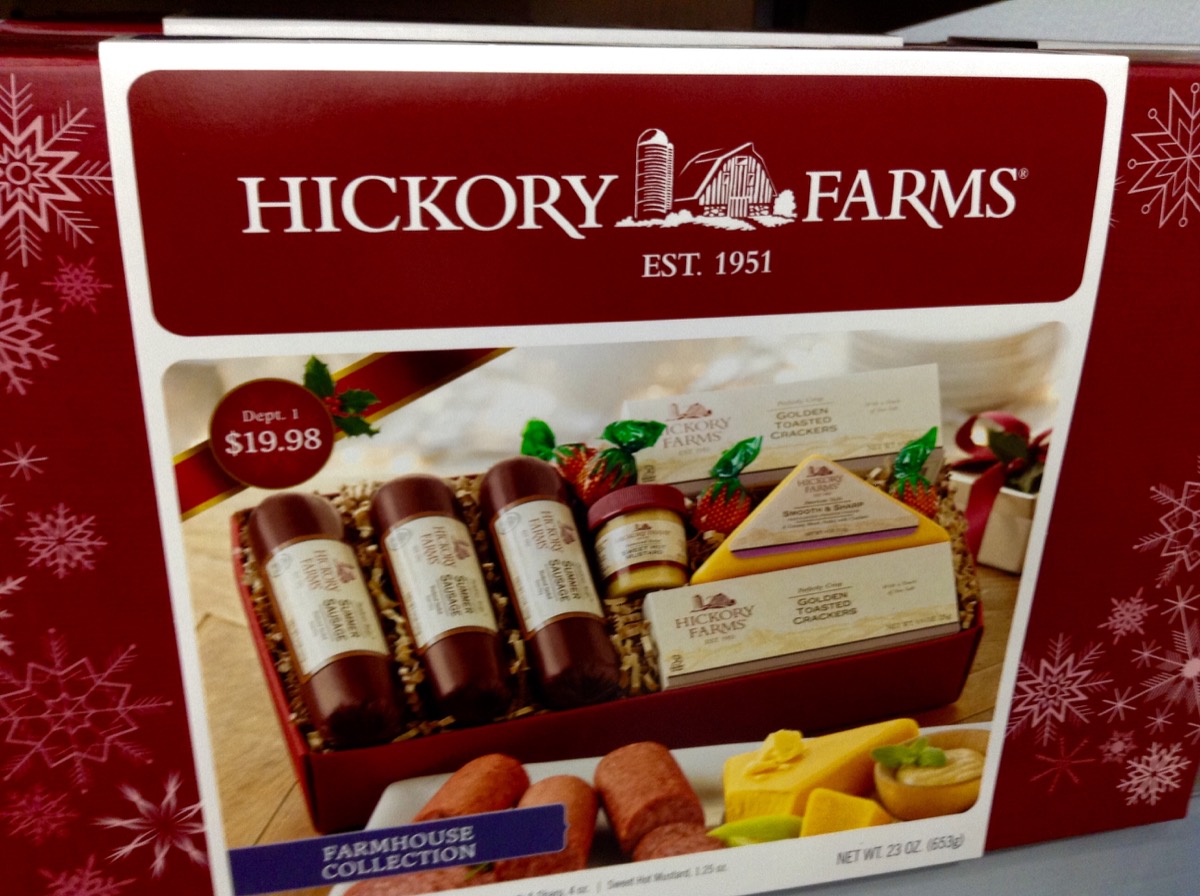
When you passed that red barn facade in the mall and smelled the rich aroma of cheese and sausage, you knew you wouldn't be able to resist. A Hickory Farms run was all about the free cheese samples—a few handfuls of cheddar cubes, and you'd have all the energy you needed to make it through the rest of your mall shopping afternoon. You can still buy the cheese online, but since the mall stores closed in 2000, our appetite hasn't been the same.
25
Ames
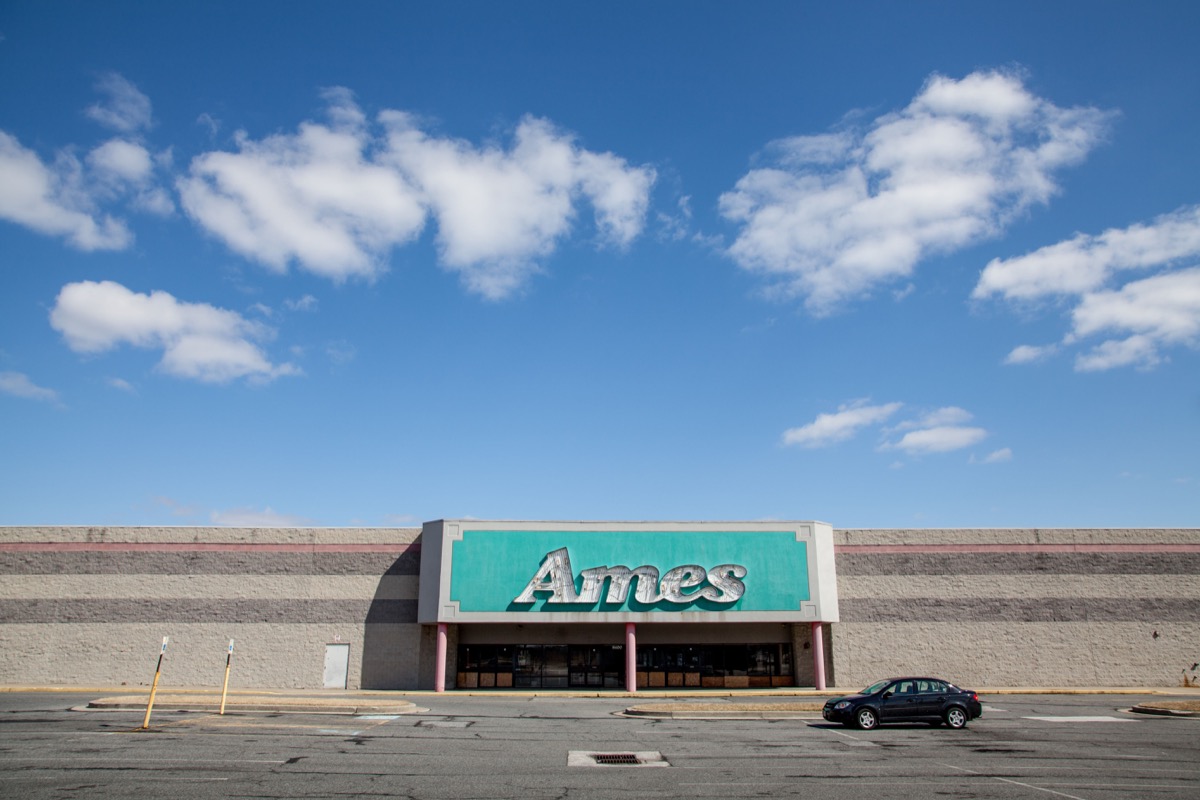
What was your favorite Ames commercial slogan? Maybe it's a tie between "Bargains by the Bagful" and "Amazing Ames" (sung to the tune of "Amazing Grace"). There was nothing flashy about an Ames discount store—lots of fluorescent lighting and plastic bins filled with deep-discounted items—but we loved shopping there anyway, because it always felt like a big scavenger hunt. They may have closed all 327 locations in 2002, but they were beloved enough that someone started an online fan club.
26
Caldor
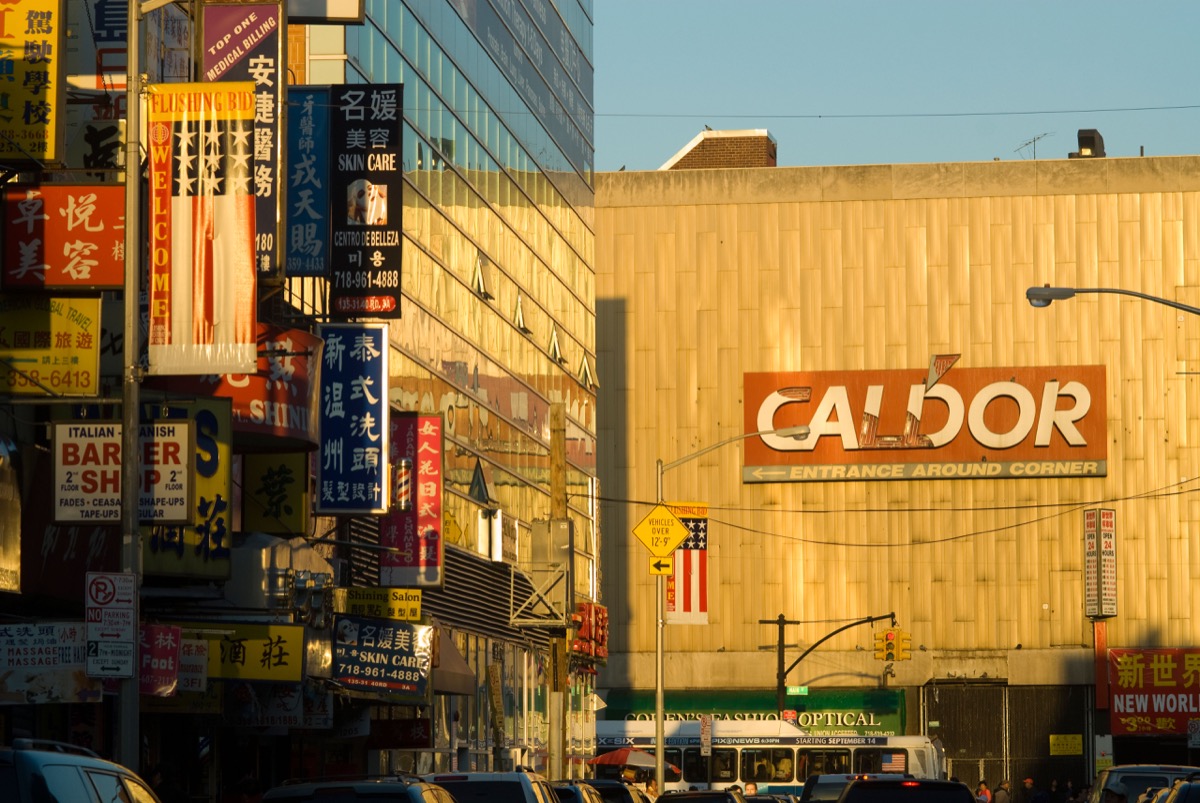
The name was a mashup of the two founders' first names, Carl and Dorothy Bennett, who founded their discount empire in Port Chester, New York in 1951. They soon developed a reputation as the "Bloomingdale's of discounting," and that was no hyperbole. You might have come for the inexpensive merchandise, but every Caldor was designed to look like a far classier department store. It was one of the few chain stores to actually live up to their motto—"Where Shopping is Always a Pleasure"—and it was a pity when it went out of business in 1999.
27
Limited Too
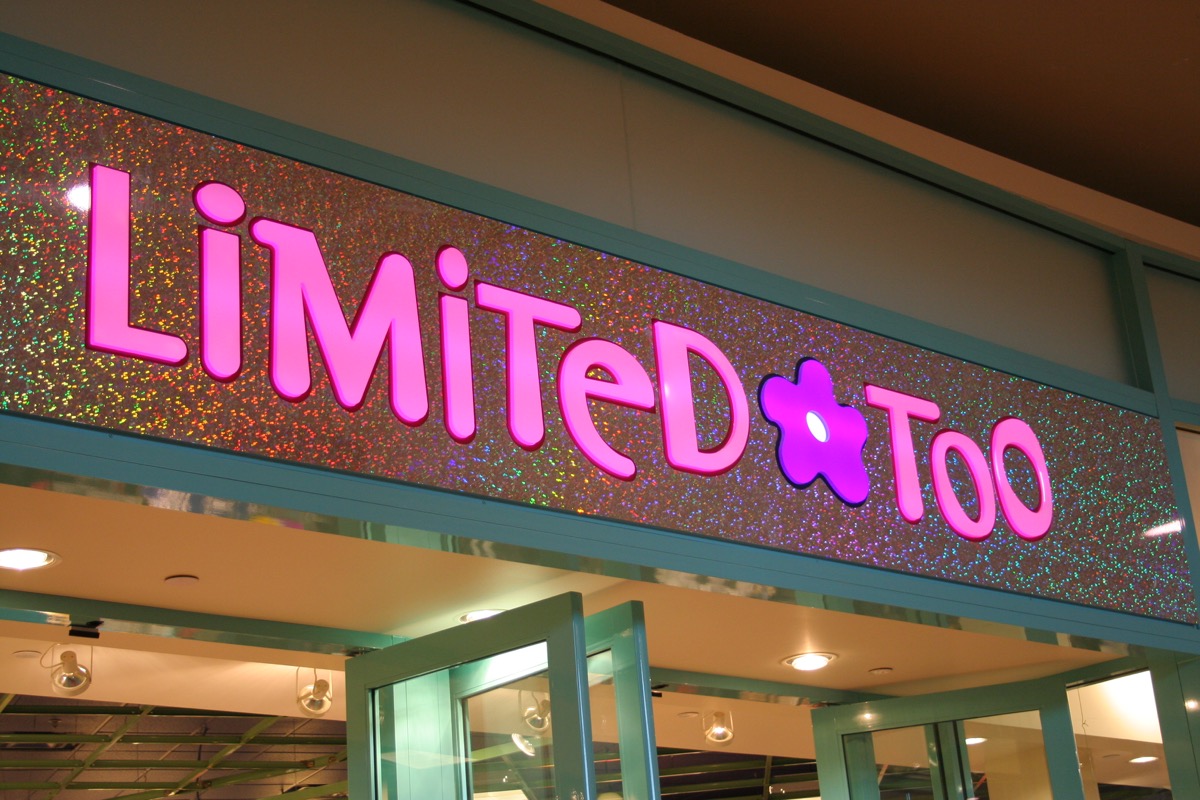
Limited Too didn't just sell sparkly clothes and jewelry to tween girls in the '80s and '90s. They also sold a fantasy in which wearing the perfect pair of pink flare jeans, a sequin belt, and friendship necklace meant you totally had a shot at becoming besties with the cast of Saved by The Bell. Stranger things have happened! In 2008, however, the dream died when the Limited Too name quietly disappeared.
28
Hecht's
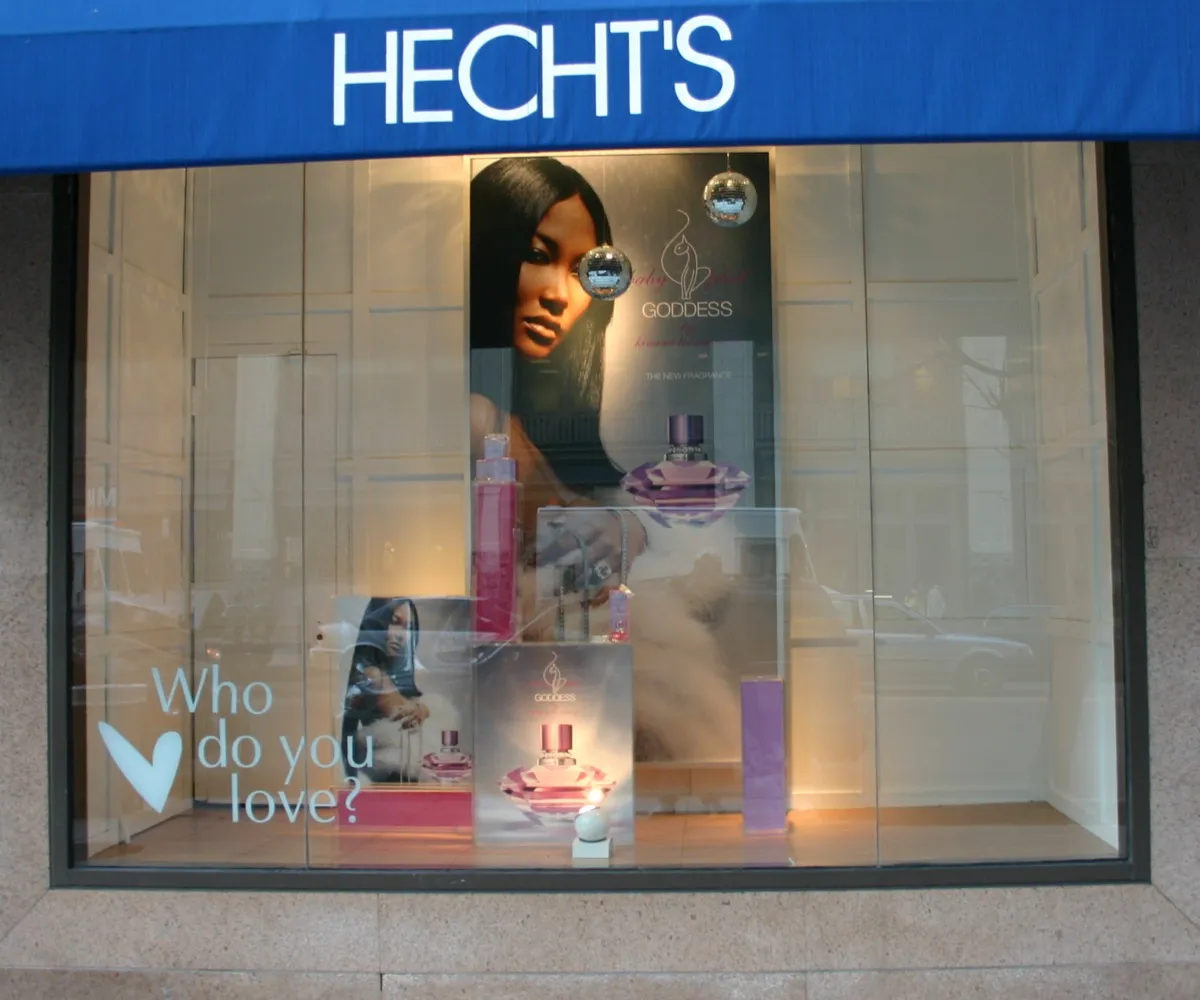
The first Hecht's opened as a Baltimore furniture store in 1857, owned and operated by a German-Jewish immigrant named Samuel Hecht. When he opened an expanded department store in Washington, D.C. in 1896, it gave the city its first parking garage. In a post-World War II America, Hecht's branched out to suburbia and created a shopping universe that became "an emblem of great business and also of aspirations—in retailing, in design, and in the quality of the environment," according to George Washington University professor Richard Longstreth. By 2006, the last of their anchor stores had been bought by Macy's, and the Hecht name was phased out for good.
29
Crazy Eddie
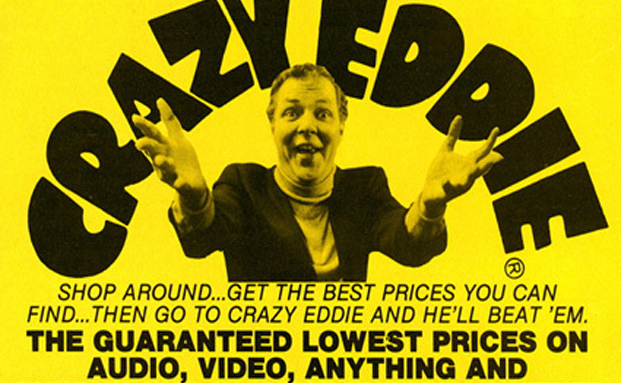
No other store in the history of retail had a better name than Crazy Eddie. They dealt in electronics, but honestly, we would have bought anything that Eddie was selling. Crazy Eddie was a real guy—Eddie Antar—who opened his eponymous electronics store with his father, Sam, in Brooklyn in 1971. The store became famous for its hilarious commercials (in which Crazy Eddie was played by an actor), promising that the prices were "IN-SA-A-A-A-A-ANE!" Customers came in droves, not just for the majorly discounted stereos and TVs, but also to catch a glimpse of the eccentric owner. The stores were bankrupt by the late '80s, and Crazy Eddie himself—the real guy, not the actor—went to prison for fraud. Well, it was fun while it lasted.
